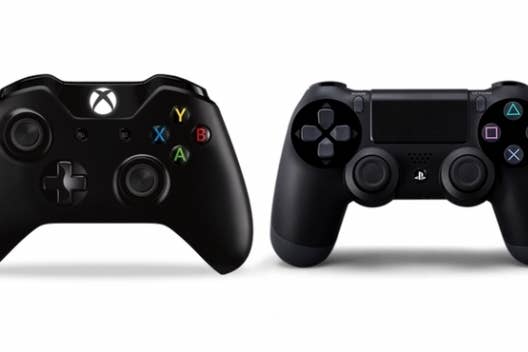End of the Golden Age: Are Games Consoles Too Generic?
Games consoles are becoming homogeneous appliances with few distinguishing features, argues Will Luton
Following the Microsoft-Sony PR circus that was E3 a number of fairweather gamer friends asked me: "What's new about those new consoles?" That's a pretty tough question. "The games sort of look a bit nicer", I'd answer.
"So similar are these black electronic monoliths that the major focus of E3 was each system's DRM. And now even that's the same"
Traditionally the trigger to buy a games console has come from a feature over the past generation: CD sound, 3D graphics, online connectivity, DVD playback, HD graphics et al. However, the Xbox One and the PS4 seem at best to offer incremental updates on existing characteristics, such as TV and motion tracking, rather than sizable new features.
In fact, despite closely watching the E3 coverage I had to rebrief myself on what these machines actually did new. I struggle to find a clear (£350+ clear) distinction over the current machine under my TV or indeed a major distinction between the two consoles. So similar are these black electronic monoliths that the major focus of E3 was each system's DRM. And now even that's the same.
To me it's clear that games consoles are heading towards becoming generic appliances with little distinguishing features, like microwave ovens. Indeed in the current generation Xbox or PlayStation was a coin flip decision: ultimately they delivered the same content in the same way.
As budgets for AAA games continue to push upward, so to does the need for the widest possible audience. This financial risk makes betting on one platform, when there are two so similar with roughly equal audience share, a bad business decision. This is unlikely to change in the next generation, unless supporting both platforms is considerably difficult (looks unlikely) and one takes considerable marketshare over the other (ditto).
What does this homogenisation mean? Firstly the console market is unlikely to grow this generation by Sony or Microsoft's hand. Even as the best TV and movie experience, these machines are games machines and will be bought by self-identifying gamers. If you had no interest in the last two generations, you're unlikely to find this generation appealing.
Secondly, the uptake for this generation will be much slower. With ostensibly incremental feature improvements, the pitch falls on the shoulders of the content and with budgets increasing this content is likely to be incrementally more explosive, yet fewer. Whilst early adopters will early adopt, I expect the sales tail will be long.
Thirdly, with hardware and software so similar, like the previous generation, neither Sony nor Mircosoft are going to run away with the market. However, it's clear that consumers are concerned about the overall quality and convenience of the service (see DRM forum rage), which could well be how the platforms are able to distinguish themselves. This however is a long slow dance.
Finally, whilst I know that there's a great number of gamers to whom console gaming is important and to me that very much used to be the case, in writing this piece I have to admit something that I'd rather not: I'm no longer excited by games consoles. And I think it's not just only me.
The next generation of consoles are not only vying for my wallet, but also my time, against a backdrop of abundant free or very cheap fresh content on PC, web and mobile. Even board games. Whilst the titles on display at E3 looked pretty and deep, they also looked tired and generic compared to what new independent developers and startups (many of whom, as I wrote last month, are still locked out from consoles) are doing elsewhere.
Being so jaded by consoles makes me feel broken; I often drag myself to GAME looking for discs to feed my PS3. I meander the aisle hoping something will grab me, hoping that there's something on the shelves I can love. I look at the boxes of men with guns, the shiny cars and myriad sports and feel unable to part with £40. I'm pervaded by the sense that I've played these games before and they aren't for me.
"If you had no interest in the last two generations, you're unlikely to find this generation appealing"
And therein lies a truth: Console gaming is still a niche aimed at a sliver of the population. Over 16 years Grand Theft Auto, one of console gaming's biggest titles, has sold around 120 million copies, whilst in only four years the Angry Birds series has seen over 1 billion downloads. That's roughly a 1:8 ratio.
Gaming is bigger than just consoles now; it's a mainstream media approaching the level of reach and cultural significance as movies, music or TV. Yet I can't shake the feeling that, despite the abundant enthusiasm of many vocal gamers, that the next generation of consoles will be met with a great deal of apathy from many more. It's a sector that many in the industry have predicted runs the risk of stagnating and stalling. I fear it already has.
Whilst I don't expect the complete disappearance of consoles, I think their golden age is drawing to an end, leaving them wide open to erosion from the varied, cheap and ever evolving content on platforms already in players' lives and those on the horizon.
Will Luton is a free-to-play designer and consultant. This is part of a regular series of features for GamesIndustry International looking at the future of the video game business. You can follow him on Twitter and visit his personal site here.

